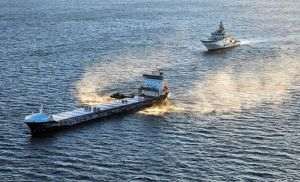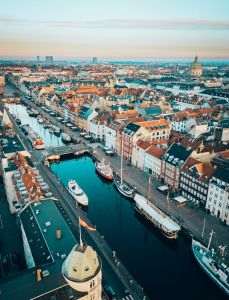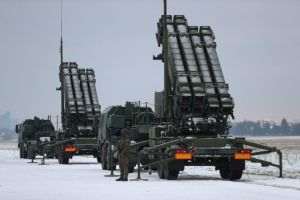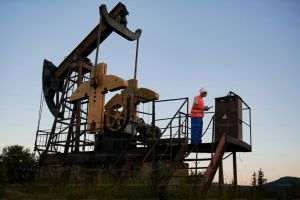We are happy that the perimeters on the continental coast of Romania (ed. note: offshore in the Black Sea) will start being exploited, because there lies inactive a very important resource of the energy industry, his excellency Valery Kuzmin, Ambassador of the Russian Federation told us in Bucharest, during Diplomat's Day.
He said: "We know that some Russian companies want to get involved, but we are not familiar with the details of their concrete plans - what they are going to do and how soon".
He feels that there are promising prospects in the oil and gas sector in Romania, a field which is the basis for the development of every country.
"We are seeing a dynamic evolution of the Romanian economy, with some delays in certain sectors, such as infrastructure, and goods production", Valery Kuzmin further said.
• Enquiries to the authorities
Opposition MPs sent these days several inquiries to the authorities concerning the export of natural gas to Hungary, as there are concerns that the entire quantity of natural gas of the Black Sea, discovered in the Neptun perimeter, will go to Hungary, through the BRUA pipeline.
Thus, PNL deputy Lucian Bode, as co-initiator of the BRUA project, has asked the minister of Foreign Affairs Teodor Meleşcanu for clarifications concerning the recent events of the energy market: "Recently, Hungarian prime-minister Viktor Orban stated that, following the meeting which the Hungarian Foreign Affairs minister had with you, thee Hungarian companies won an auction to import natural gas from Romania and that shortly, Hungaria will sign an agreement with Romania by which, starting with 2020, it would be allowed in the coming 15 years to import annually over 4 billion cubic meters of natural gas from Romania. Unfortunately, your reaction was the opposite of the claims made by the Hungarian prime-minister, as the position of the ministry you lead was to deny the signing of an agreement with your Hungarian peers.
I would like to ask you, minister, the following:
1. Was Viktor Orban right, has Romania pledged to sell to Hungary approximately 60 billion cubic meters of natural gas in the following 15 years?
2. Following bad public communication or trying to hide certain «details» from the public, the Ministry of Foreign Affairs did not clearly convey that the action mentioned by Viktor Orban is one that is natural for a certain stage, in which one or several Hungarian companies have gained the right to convey natural gas through the BRUA pipeline, without that action automatically meaning that the entire quantity of natural gas transported would stay in Hungary?"
In the opinion of the PNL deputy, the development of the BRUA represents an important step that Romania is making towards the finalizing our country's interests in the region and which implicitly determine the increase of the energy security of Romania, the creation of the premises for the interconnection of the pipelines which will have as potential sources the natural gas of the Black Sea, as well as the guarantee that the countries in Central and Eastern Europe will have access to at least three different sources of energy. The moment this project was born, the parties involved devised a project that would protect Romania, according to the PNL parliamentarian, a system which would protect Romania and provide it with the possibility to bidirectionally transport natural gas to Bulgaria, as well as Hungary and Austria.
Lucian Bode claims: "The volume of the deposits in the Black Sea is not known accurately, as the most pessimistic estimates predict a volume of 70-80 billion cubic meters of natural gas. The importance of this project, which would ensure an alternative to Romania's natural gas supply, through the access to the liquefied natural gas from Greece through Bulgaria, as well as the interconnection with the pipelines which would have as its source of natural gas the Black Sea, seems to represent an unknown for the experts of the Government you are a part of".
Inquiries on the same matter were made by parliamentarians Matei-Adrian Dobrovie, of USR, and Marilen Gabriel Pirtea, of PNL.
(https://www.bursa.ro/s=companii_afaceri&sr=&ssr=&articol=340816&key=.html)
Hungarian prime-minister Viktor Orban announced at the end of last week, that Hungary would be importing significant quantities of natural gas from Romania, thus reducing its reliance on Russian gas. Viktor Orban said: "In the coming years, Romania will extract approximately four billion cubic meters of natural gas which it intends to export. An American company will perform this work, and in the pertaining call for bids (ed. note: for the natural gas in the Black Sea), the first three places were won by companies that are 100% owned by Hungarians. Therefore, we will soon be making an agreement which would allow us to import annually, over four billion cubic meters of natural gas from Romania, for the next 15 years. The Hungarian section of the gas interconnection is already complete, and the Romanian section is currently being built. That means that around 2021-2022, we will be in a different situation. And so, with the appropriate modesty, as well as with pleasure, I can announce that the age of the Russian monopoly on natural gas in Hungary will end, because we will be able to buy more than half of our natural gas imports from a different source - in this case Romania.
This is a completely new situation - not just for Hungary, but for the entire region. So far, we have succeeded only in diversifying the natural gas transport routes, but we are now capable of diversifying the sources of natural gas. That means that Hungary will find itself in a new geostrategic position - one that is more favorable than before".
The statement by the Hungarian official comes after a meeting between the Romanian foreign affairs minister Teodor Meleşcanu, and Hungarian foreign affairs and foreign trade minister, Peter Szijjarto. While the foreign affairs minister announced that he has agreed with the Romanian party that by 2020 Romania would be creating the necessary technical conditions for the export of natural gas to Hungary, and for allowing the transport of a significant quantity of natural gas extracted from the Black Sea to Hungary starting in 2022, Teodor Meleşcanu strongly denied the signing of such a deal between Romania and Hungary.
OMV Petrom and the Americans of ExxonMobil have completed the second drilling campaign in the Neptun perimeter of the Black Sea, as the first estimates show that there could be between 42 and 84 de billion cubic meters of natural gas. For comparison, Romania's annual output of natural gas is approximately 11 billion cubic meters.
A few years ago, the Chamber of Deputies unanimously voted in favor of the Legislative proposal concerning the measures needed for the implementation of the project for the development on Romania's territory of the System for the Transportation of Natural Gas on the corridor of the Bulgaria-Romania-Hungary-Austria transport pipeline (BRUA).
The initiators of this legislative proposal were PSD deputies PSD Iulian Iancu, Marin Gheorghe and Rodin Traicu and PNL deputies Lucian Bode and Răzvan Mironescu.
















































